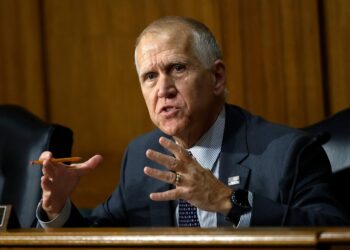In early 2025, Florida introduced two bills, House Bill 487 and Senate Bill 550, that aimed to authorise the state’s Chief Financial Officer to invest up to 10% of certain public funds in Bitcoin. These proposals were part of a broader movement among U.S. states to explore the integration of cryptocurrencies into public finance, inspired in part by federal initiatives, such as President Trump’s executive order establishing a Strategic Bitcoin Reserve.
However, by May 3, 2025, both bills were indefinitely postponed and withdrawn from consideration. This decision aligns Florida with several other states, including Wyoming, Pennsylvania, and Oklahoma, where similar Bitcoin reserve proposals have failed to advance. The withdrawal reflects a cautious approach to incorporating volatile digital assets into state treasuries, highlighting concerns over regulatory clarity, market stability, and fiduciary responsibility.
Florida’s Bitcoin Reserve Bill retreat raises an important question: Does this represent a prudent avoidance of risk in public fund management, or is it a missed opportunity to position the state at the forefront of financial innovation?
Florida’s Bitcoin Reserve Bill: Key Provisions and Goals
Florida’s proposed Bitcoin Reserve Bill, House Bill 487, aimed to authorise the state’s Chief Financial Officer (CFO) to invest up to 10% of certain public funds in Bitcoin. The bill outlined specific provisions for the management and oversight of these investments.

Key Provisions of the Bill:
- Investment Authorisation: The Bitcoin Reserve Bill authorised the CFO to invest in Bitcoin using funds from various state accounts, including the General Revenue Fund, the Budget Stabilization Fund, trust funds, and agency funds of state agencies and the judicial branch.
- Investment Limits: Investments in Bitcoin were capped at 10% of the total funds in any account.
- Custody Requirements: The bill specified that Bitcoin holdings must be secured through direct custody by the CFO or the State Board of Administration (SBA), held by a qualified custodian, or invested in exchange-traded products issued by SEC-registered investment companies.
- Loan Provisions: The CFO and other approved parties were authorised to loan acquired Bitcoin to generate additional returns, provided such actions did not increase financial risk.
- Tax and Fee Payments: The bill established a mechanism for handling taxes or fees paid to the state in Bitcoin, requiring their transfer to the General Revenue Fund and reimbursement from the General Revenue Fund to the designated fund in U.S. currency.
- Security Requirement Exemptions: Bitcoin investments were exempted from certain security requirements that apply to public deposits under Florida law.
Intended Goals of the Bill:
- Positioning Florida as a Leader in Cryptocurrency Innovation: By integrating Bitcoin into its financial reserves, Florida aimed to establish itself at the forefront of state-invested crypto adoption in the US.
- Attracting Crypto-Related Businesses and Investments: The Bitcoin Reserve Bill sought to create a favourable environment for blockchain and cryptocurrency enterprises, potentially boosting the state’s economy and job market.
- Enhancing Florida’s Financial Position in the Global Market: Diversifying state assets with Bitcoin was intended to provide a hedge against inflation and currency devaluation, potentially strengthening Florida’s financial stability and global economic standing.
Why Florida May Have Withdrawn the Bitcoin Reserve Bill
A combination of political, economic, and legal considerations may have influenced Florida’s decision to withdraw its Bitcoin Reserve Bill.
Why Florida May Have Withdrawn the Bitcoin Reserve Bill
- Possible Political and Regulatory Pressure
- Speculated Concerns Around Market and Economic Uncertainty
- Possible Concerns About Public Perception and Legal Risks
Possible Political and Regulatory Pressure
The bill may have faced quiet resistance from state lawmakers or political figures concerned about the risks of state-invested crypto in public finance. According to the News-Journal, Guangzhi Shang, a crypto expert at Florida State University, raised concerns about Bitcoin’s extreme volatility and its impact on pension stability.
Shang also pointed out that government-imposed restrictions could affect Bitcoin’s value and liquidity. While no direct link has been confirmed, such expert warnings may have influenced lawmakers to take a more cautious approach, contributing to the decision to shelve the bill.
Speculated Concerns Around Market and Economic Uncertainty
Bitcoin’s well-known price swings may have raised doubts about its fit within state-managed investment pools. In uncertain economic times, marked by inflation, shifting interest rates, and volatile markets, states tend to prefer more stable investment strategies.
Bitcoin’s unpredictable performance during market downturns could have made it an uneasy choice for policymakers, possibly reinforcing the decision to step back from the proposal.
Possible Concerns About Public Perception and Legal Risks
It’s also possible that lawmakers were concerned about how the public might react to using taxpayer money for what some see as volatile or speculative investments.
Uncertainty surrounding legal and regulatory frameworks, particularly as crypto laws continue to evolve at both the state and federal levels, may also have contributed to hesitation. These factors may have made it difficult to move forward with a clear and secure strategy, prompting the quiet withdrawal of the Bitcoin Reserve Bill.
What Florida’s Withdrawal Means for Other States
Florida’s recent decision to withdraw from maintaining a cryptocurrency reserve could have significant implications for other states considering similar initiatives.
Florida was initially viewed as a leader in integrating crypto into public finance, but the pullback raises concerns about the regulatory and financial risks involved. If other states were contemplating similar steps, Florida’s move might prompt them to pause or reconsider their own plans.
The decision could indeed serve as a cautionary tale, especially for states still working to establish clear crypto regulations. Given the volatile nature of digital assets and ongoing uncertainty about federal regulation, Florida’s withdrawal highlights the challenges of managing state-invested crypto within public finance.
States could now view the risks of market instability or regulatory backlash as too great, leading them to explore alternative strategies rather than jumping into crypto reserves.
Alternative Crypto-Friendly State Initiatives
Although Florida has taken a step back, other states are still moving forward with crypto-friendly policies. Wyoming and Texas are two notable examples of regions that have fully embraced digital assets within their financial strategies.
Wyoming continues to lead the way by enacting a range of crypto-friendly regulations, such as providing legal clarity for cryptocurrency businesses and creating a special banking charter for crypto companies. The state has also passed over 20 blockchain-related laws, making it an attractive destination for cryptocurrency companies seeking a supportive legal environment.
Texas has also positioned itself as a significant player in the crypto space, particularly through Bitcoin mining. With its relatively low energy costs and a deregulated power grid, the state has become a hotspot for miners. Texas is also creating incentives for blockchain businesses by introducing tax breaks and pro-crypto legislation, helping it become a crypto hub in the U.S.
In addition to U.S. states, countries such as Switzerland and El Salvador continue to demonstrate how national governments can integrate cryptocurrency into mainstream finance. Switzerland offers favourable conditions for blockchain projects, while El Salvador made Bitcoin legal tender, signalling a forward-thinking approach to public crypto adoption.
Shifting Perceptions: The Risk of Backtracking
Florida’s retreat from its state-invested crypto reserve plan could send mixed signals about the viability of integrating cryptocurrency into state-level finance.
On the one hand, it could hinder the progress of public crypto adoption in other states by reinforcing the perception that digital assets are too risky or volatile for government use. States looking to develop crypto-based initiatives may delay or abandon their plans, opting for more traditional financial models to avoid any future setbacks.
On the other hand, Florida’s move might also reflect a more responsible approach to governance. Rather than rushing into crypto adoption without fully understanding its implications, Florida may be signalling to other states the importance of due diligence.
It’s a reminder that while innovation is necessary, fiscal responsibility and risk management must take precedence when dealing with taxpayer funds. This could ultimately lead to a more careful and thoughtful integration of cryptocurrency into public finance across the country, with better-regulated and more stable frameworks.
The Future of State-Invested Crypto
For states to safely invest in cryptocurrency, they require clear rules, careful planning, and a thorough understanding of how digital assets can benefit them in the long run.
Clear Rules and Legal Guidance
Currently, there is no single set of federal rules governing cryptocurrency in the U.S. Instead, each state has its own laws, which can make things confusing. To address this, lawmakers are working on bills such as the Digital Asset Market Structure (DAMS) draft. This law would clearly divide crypto oversight between two federal agencies: the Securities and Exchange Commission (SEC) and the Commodity Futures Trading Commission (CFTC), so everyone knows who is in charge.
Careful and Balanced Approaches
Some states are testing the waters with small crypto investments. For example, New Hampshire’s House Bill 302 allows officials to invest up to 5% of public funds in big-name cryptocurrencies and precious metals. This cautious step helps reduce risk.
States are also exploring Central Bank Digital Currencies (CBDCs), government-backed digital currencies, as a safer way to introduce crypto into the system before venturing into more risky assets like Bitcoin or Ethereum.
The Broader Implications for State-Level Crypto Investment
By stepping back from its Bitcoin Reserve Bill, Florida may be signalling to other states that embracing crypto without clear rules could be premature, especially when public funds and taxpayer trust are at stake.
However, this cautious stance could also mean missing out on early advantages in a fast-moving financial frontier. States that wait too long may lose their opportunity to attract crypto businesses, modernise their economic infrastructure, or lead in digital innovation.
Ultimately, the future of state-invested crypto will hinge on finding a balance, embracing new tools like blockchain and Bitcoin while building solid legal and fiscal safeguards. Florida’s decision may not end the conversation, but it will likely reshape how other states approach the intersection of finance, innovation, and public accountability.
Disclaimer: This article is intended solely for informational purposes and should not be considered trading or investment advice. Nothing herein should be construed as financial, legal, or tax advice. Trading or investing in cryptocurrencies carries a considerable risk of financial loss. Always conduct due diligence.
If you would like to read more articles like this, visit DeFi Planet and follow us on Twitter, LinkedIn, Facebook, Instagram, and CoinMarketCap Community.
Take control of your crypto portfolio with MARKETS PRO, DeFi Planet’s suite of analytics tools.”





















